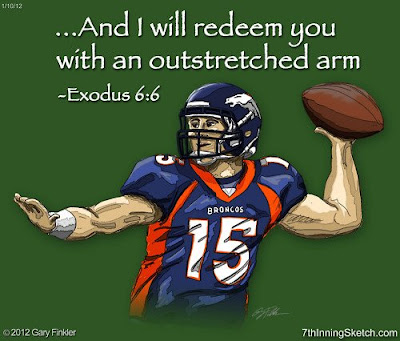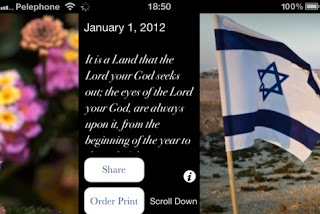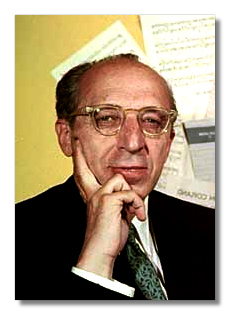 |
| TLC’s new reality TV show “The Sisterhood” has been panned by Christians for disrespecting Christianity and by Jewish people for using Jewish ritual in a Christian framework. |
The new reality show features Texas couple Brian Lewis and his wife Tara and their children. The show premiered on New Year’s day. In the second episode, the family discusses their preparation for their son’s upcoming bar mitzvah. The couple’s 13-year-old son Trevor however isn’t Jewish and neither are his parents. In fact, Trevor’s father is a Christian pastor who was raised in a Jewish household before converting to Christianity before marriage.
In the show Tara speaks directly to the camera, explaining, “To celebrate our Jewish heritage, we are throwing him a Bar Mitzvah. A Christian Bar Mitzvah.” Brian explains it as more than just a passing of age ceremony and more of a social event.
The notion of a Christian boy celebrating a bar mitzvah was enough to irk many Jewish viewers, but the show ruffled even more feathers by using Jewish ritual items for the occasion. Pastor Brian reveals to his son the tallit that he will wear for his ceremony.
This raises the question of whether Jewish people “own” such concepts as a bar mitzvah and traditionally Jewish ritual garb like a tallit. After all, the Jewish people were not the first people to create entering adulthood ceremonies or prayer shawls (those are likely borrowed from the ancient Egyptians). So, the episode actually encourages an interesting conversation about the kishke (gut) reaction to seeing a religious Christian family appropriating a Jewish life-cycle event and Jewish ritual items. Interestingly, some Jewish people even took exception with the cake prepared for Trevor’s bar mitzvah resembling a Torah scroll.
I’ll get back to the Christian bar mitzvah, but two very recent events forced me to consider these issues as well. Sitting in a session on Tuesday morning at CES (the Consumer Electronics Show) in Las Vegas, a gentleman wearing tzitzit (a four cornered undergarment with ritual fringes hanging out) sat down next to me. I immediately noticed that he wasn’t wearing a kippah (yarmulke) although the four braided fringes complete with threads of blue were proudly dangling around his waist. It didn’t take me long to realize that he was a religious Christian and not Jewish. Eavesdropping on the conversation he was having with the woman on the other side of me, I heard him explain that he and his family live a devout Christian lifestyle in Texas in accordance with both the Old Testament and the New Testament.
| Rohan Marley shows off his gold Jewish Star necklace as I display my gold chai necklace. |
The second event took place yesterday at CES when I visited with Bob Marley’s son Rohan at the House of Marley booth. House of Marley is a headphones company and part of the Marley family of brands including the Marley Mellow Mood drink that is owned by Bob Marley’s family and investors from the Detroit Jewish community including Gary Shiffman and Alon Kaufman. Rohan, a former football player for the University of Miami and the Canadian Football League, proudly displays a gold Jewish star around his neck. When I asked him why he wears a Jewish star I got a heartfelt ten-minute explanation of how his Rastafarian belief draws from both the Old Testament and the New Testament. He told me that the Jewish star is his way of reminding himself daily of the ethics of the Jewish biblical tradition and how that is the foundation of Christianity.
While some would be uncomfortable with gentiles wearing tzitzit or a Jewish star necklace, my feeling is that we Jews don’t have the trademark on such things. Yes, they are inherently Jewish in our time and in our culture, but what is preventing someone else from adopting those items and connecting their own narrative to them. Who says that only Jews can get married under a chuppah or dance the hora at a wedding? Who says that a Christian boy with Jewish ancestry can’t have a ceremony on his 13th birthday called a bar mitzvah? It might make some Jews uncomfortable, but that gut reaction should lead to a conversation about why it elicits that response.
My colleague, Rabbi Eliot Pearlson of Miami, provided me with some insightful links and images on such topics as specifically Christian tzitizit and tallit, Christian chuppas and ketubas (wedding contracts), South Koreans studying Talmud, and Christian Bar and Bat Mitzvahs. We are living in interesting times, but religions have historically borrowed and appropriated different traditions and rituals from each other.
Another one of my colleagues, Rabbi Joshua Ratner, offered that he takes exception with non-Jews “picking up rituals they (and often we) don’t understand just because they look cool. I have far less of an issue with imitation/syncretism if the object being ‘borrowed’ has some understood meaning that results in others wanting to borrow it, rather than its aesthetic content. But that just begs the question–to be Rabbis Without Borders, if we know that religious syncretism is a way of life, do we now have an obligation to educate the non-Jewish public as well as our particular Jewish communities?”
That comment reminded me of when I was a child and my father would let me borrow his tools. If you’re going to use my hammer, he would say, let me first show you how to use it correctly. But does borrowing something mean the borrower has to use it the same way the lender does? Shouldn’t everyone have the right to determine which religious rituals they want to use from other faiths and have the ability to put their own spin on them without criticism? As uncomfortable as that may make some of us, I think the answer is yes.
Here’s the clip from the “A Christian Bar Mitzvah” episode of The Sisterhood:











